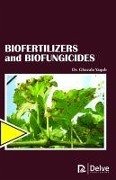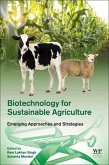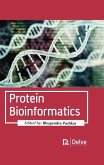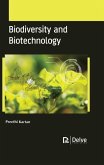Chemical fertilizers are widely used with the purpose to enhance output in various product varieties in agriculture. As, chemical fertilizers are the big¬gest reason of posing pollution to the water bodies, ground water, and also bioaccumulates in crops hence badly destroying ecological cycles. Therefore, modern scientists are focusing to switch completely from chemical farming to organic farming in order to encourage sustainable agriculture. In organic farm¬ing crops are not polluted as they rose through use of manures, biofertilizers and biopesticides which not only provides optimum nutrients to plants but also keep pests and pathogens in control. Biofertilizers are actually "microorgan¬isms which bring roughly nutrient enrichment of soil through enhancing the availability of nutrients to plant crops". These micro-organisms who exhibit the ability to act as bio-fertilizers are the bacteria, cyanobacteria and mycor¬rhizal fungi. Biofertilizers provides considerable potent benefits to agriculture as well as public health programmes. Both developing and developed countries have a vast potential for biofertilizers. However, their adoption by farmers es¬pecially in developing countries needs education for maximizing benefits. The stress on organic farming as well as on residue free materials would certainly merit enhanced adoption of biofungicides by the farmers. The use of fungicides reduces crop productivity loss because the chemically synthesized pesticides are no doubt quick in their effect but on the other hand they cause so many environmental and health just as revival of new pests, fungal resistance, loss of soil fertility and persistence of toxic substances when they are consumed by animals and humans. All these problems call for an eco-friendly and sustainable approach in order to decrease the usage and dependence of chemically synthe¬sized fertilizers and pesticides. Similarly, there are so many natural fungicides that can be best alternatives to control fungi and enhancing plant life. Thus, the purpose of this book is to provide that knowledge about recent advancements in the emerging fields of Biofertilizers and Biofungicides as both of them are considered to be ecofriendly as well as sustainable substitutes to chemical fertilizers and fungicides respectively.Chapter 1- 10 discusses all aspects of biofertilizers with special focus on recent advances in this technology while Chapter 11- 14 are about Biofungicides, their applications and recent advances in this field of organic farming.
Hinweis: Dieser Artikel kann nur an eine deutsche Lieferadresse ausgeliefert werden.
Hinweis: Dieser Artikel kann nur an eine deutsche Lieferadresse ausgeliefert werden.








